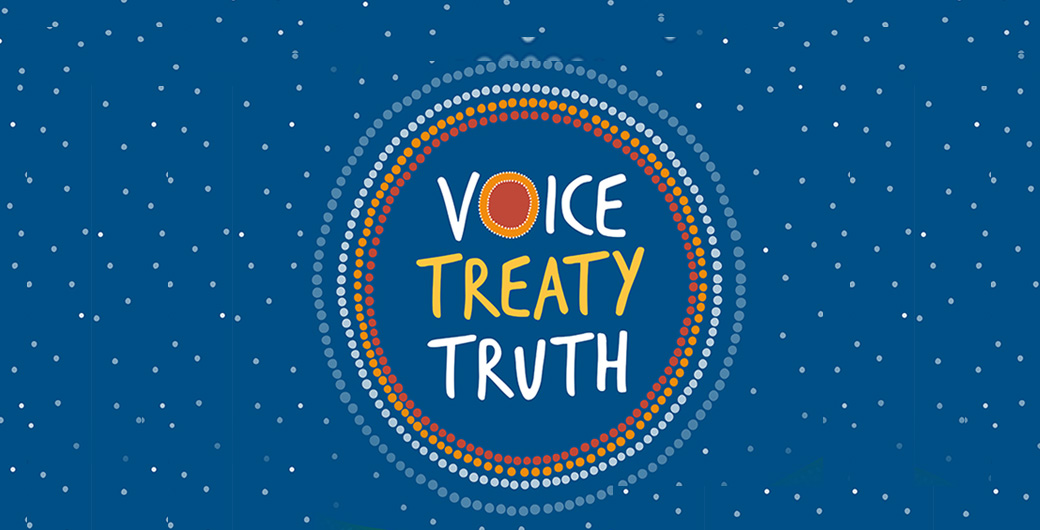
Each year NAIDOC Week celebrates the achievements, history and culture of Aboriginal and Torres Strait Islander peoples and gives non-Indigenous Australians the chance to get involved in NAIDOC Week celebrations in their communities. This year NAIDOC Week will be held from 7-14 July.
This year’s theme is “Voice. Treaty. Truth” and highlights the desire of Indigenous communities to have an enhanced role in decision-making in Australia.
The Uluru Statement represents the unified position of Aboriginal and Torres Strait Islander peoples—first, the need to create a representative First Nations Voice to Parliament which is recognised by the Australian Constitution, followed by a Makarrata Commission to supervise a Treaty process and truth-telling.
These reforms proposed and endorsed by the Aboriginal and Torres Strait Island communities throughout Australia would allow Indigenous voices to be heard, continue the process of reconciliation, and begin to build a country which properly recognises and includes its First Peoples. To be meaningful, there must be attention to a full acknowledgement of past and present injustice and the impact of colonisation.
ANZSOG believes the Uluru Statement is important and is embarking on its own journey to ensure we live up to our responsibility to include Indigenous ways of knowing and being in our mission to lift the quality of public sector leadership in Australia and New Zealand, including proper representation of Indigenous people at all levels of the public sector in Commonwealth, State/Territory and Local Governments.
We are working to make Indigenous voices heard by governments, through the creation of forums where Indigenous people can discuss issues relating to Indigenous policy and the public sector.
In February, ANZSOG, with financial support from the Commonwealth Department of the Prime Minister and Cabinet (PM&C), held the Reimagining Public Administration conference in Melbourne, which brought together more than 400 public servants, academics and Indigenous community leaders.
The conference explored the future of Indigenous public administration, how we can embed Indigenous ways of knowing and doing into public service practice, and shared successes in a range of policy areas including health, education, and justice.
The final report from the conference is now available and summarises the dialogue that occurred, as well as outlining four consistent messages that emerged from debate:
Give communities more control
Everyone can learn from Indigenous ways of knowing and being
Representation matters
We are all agents for change
ANZSOG has also held two forums for Senior Indigenous Public Servants from Australia and New Zealand to connect across jurisdictions and develop solutions to some of the biggest challenges facing Indigenous public servants and the public service. The final report from the December 2018 Forum discussed Indigenous leadership development, the use of organisation-wide targets for recruitment and retention, and the need for a greater focus on cultural competence.
Improving outcomes in Indigenous Affairs requires greater involvement of Indigenous communities and developing Indigenous leadership both inside and outside the public sector.
It requires governments to listen to the voice of First Peoples and hand back control over their future.
And it requires change in the apparatus of government too. This is why our submission to the APS Review, led by Aurora Milroy and our First Peoples Team with input from key stakeholders from the community, suggested the introduction of Indigenous values into the Australian Public Service Act. Making the federal public service and its legislative framework more representative of Indigenous worldviews and ways of knowing is an important first step to stronger Indigenous participation in decision-making more broadly.
These changes will take time, but at ANZSOG we hope our small contribution can help chart the way to a future where the many Australian Indigenous achievements are celebrated all-year round. Read more about ANZSOG’s Indigenous engagement on the ANZSOG website.

Further resources
Sign up to ANZSOG’s Indigenous news mailing list for new stories and upcoming events
Find out more about ANZSOG’s Indigenous engagement
Search APO’s First Peoples & Public Policy Collection, bringing together diverse, policy-relevant resources from the existing APO repository as well as new materials
